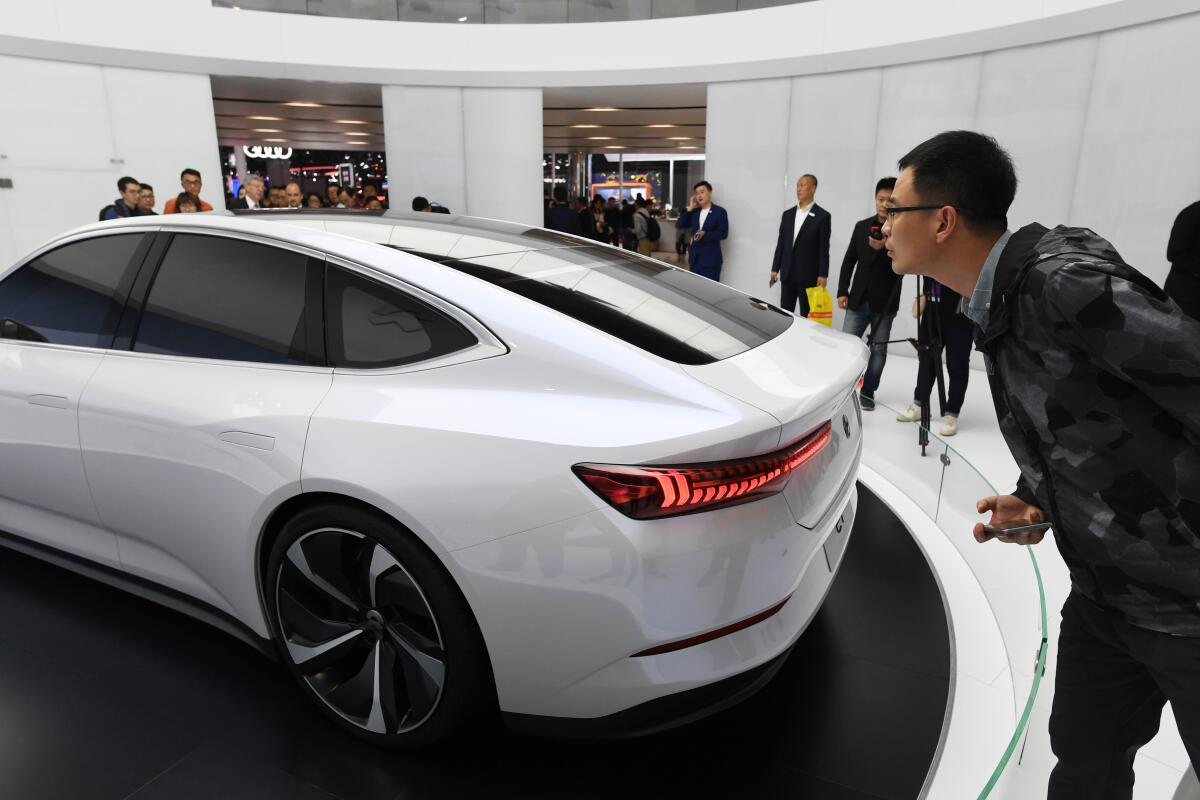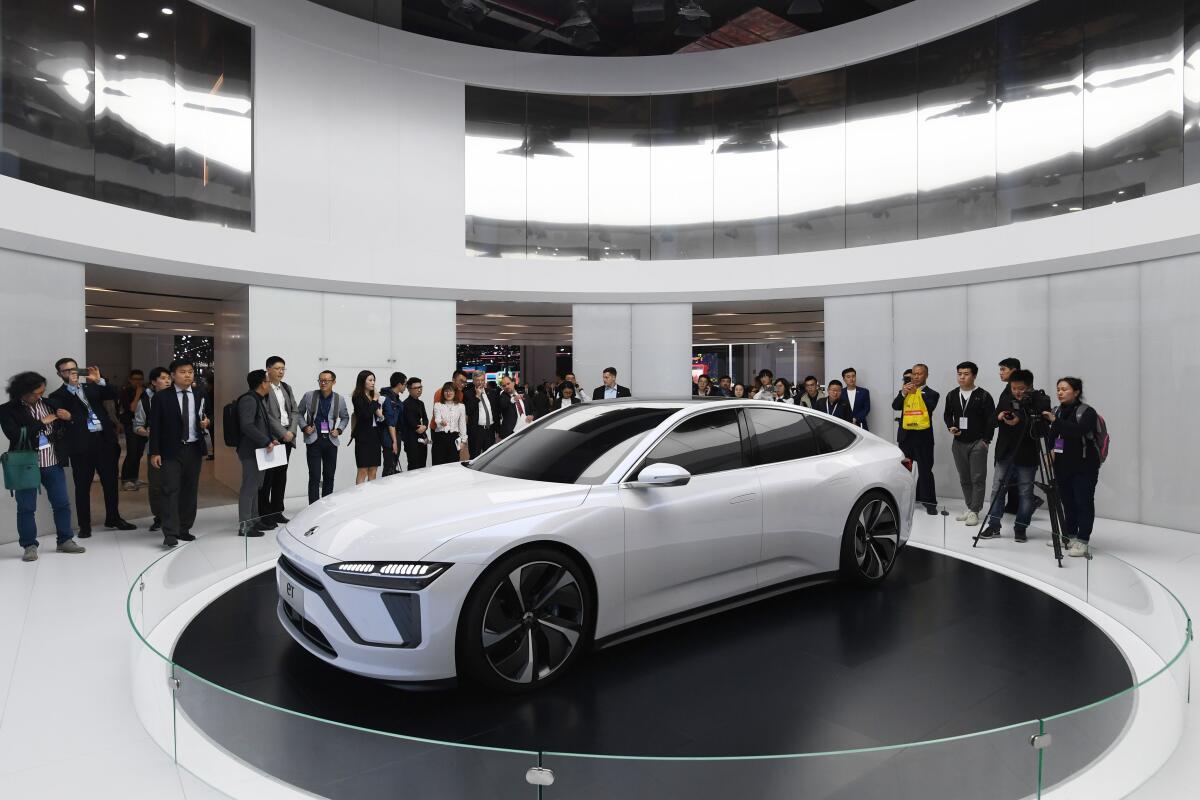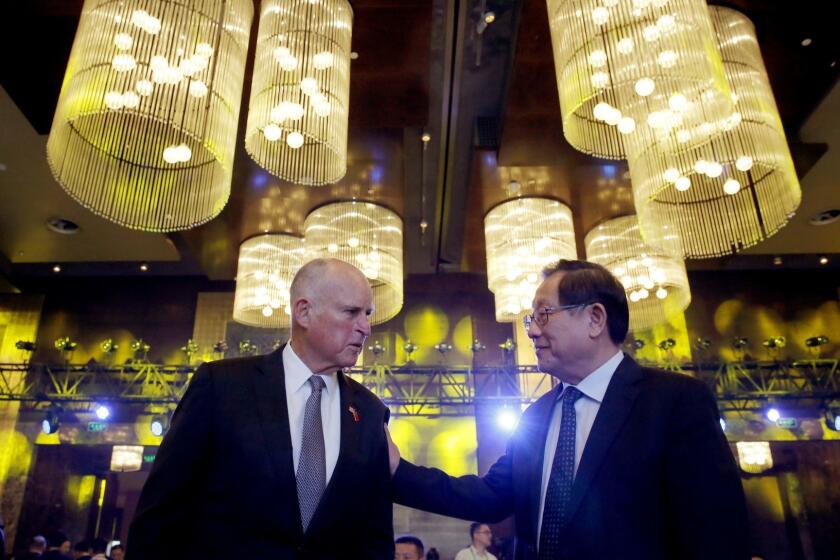Tesla’s Chinese rival NIO has lost $5 billion and is fighting to survive

- Share via
Tesla Inc. took about 15 years to rack up $5 billion in losses. NIO Inc., the electric-vehicle maker that some see as China’s Tesla, did it in four.
And the bleeding continues. Shanghai-based NIO is poised to report Tuesday that it lost about $370 million — around $4 million a day — during the second quarter, according to the average of two analysts’ estimates. That would bring accumulated losses at the company, which is backed by technology giant Tencent Holdings Ltd., to about $5.7 billion since William Li founded the carmaker in 2014.
Cost overruns, weak sales, and major recalls have led NIO’s market value to plunge about 75% since it hit a record $11.9 billion about a year ago. More broadly, the company’s reversal of fortune illustrates why concerns are mounting that China created an electric-vehicle bubble that may be about to burst.

“This year and the next, there’s going to be a lot of card-shuffling for these [electric vehicle] startups,” said Siyi Mi, an analyst at BloombergNEF. “Before, venture capital chased after them, but it’s not the case anymore.”
NIO’s U.S.-listed shares sank 10.5% on Monday.
Total electric-vehicle sales in China, where half of the world’s electric cars are sold, fell for the first time in July after the government scaled back subsidies. Deliveries dropped again in August, raising doubts that one of the final areas of strength in China’s auto market — which has fallen 14 of the last 15 months — is wavering.
China has gradually scaled back subsidies for new-energy vehicles — all-electrics, fuel-cell autos and plug-in hybrids — since 2017 to help the industry stand on its own two feet and avoid a bubble. That has undermined growth, prompting the likes of top Chinese electric-carmaker BYD Co. to warn recently that earnings will wane.
At this year’s Beijing Auto Show, a retired Chinese bureaucrat bent down to run his hands over the hood of a sleek sports coupe billed as the world’s fastest battery-powered car.
At NIO, pressure is building for the company to raise more funds. The carmaker is seeking to reduce its workforce by 14% to 7,500 by the end of the month. Incidents involving batteries catching fire or spewing smoke led NIO to recall about 4,800 vehicles — more than 20% of all the cars it has ever sold. Second-quarter deliveries dropped compared with the first quarter.
The company also scrapped plans for a manufacturing plant in Shanghai after the government opted to provide financial support to Tesla. Instead, NIO farms out production of its ES6 and ES8 cars to Anhui Jianghuai Automobile Group Co.
Tencent and Li each plowed $100 million into NIO this month, but the capital-intensive nature of the auto industry means that “this much money won’t last long,” said Bill Russo, founder and chief executive of Shanghai auto advisory firm Automobility Ltd.
Li has played down his company’s challenges, saying in a June interview that NIO’s stock rout was “no big deal” and that investors needed to understand making new cars costs money.
But money is in short supply for the carmaker, which is now counting on receiving as much as $1.4 billion in funding from an investment firm backed by the Beijing city government.
Another looming challenge for NIO is Elon Musk-led Tesla, which plans to start production in China this year, enabling the California company to cut prices of its vehicles sold in China.
“NIO didn’t position itself in the right place,” said Yale Zhang, founder and chief executive of consulting firm AutoForesight. “I’m not optimistic about its future in the long run.”







